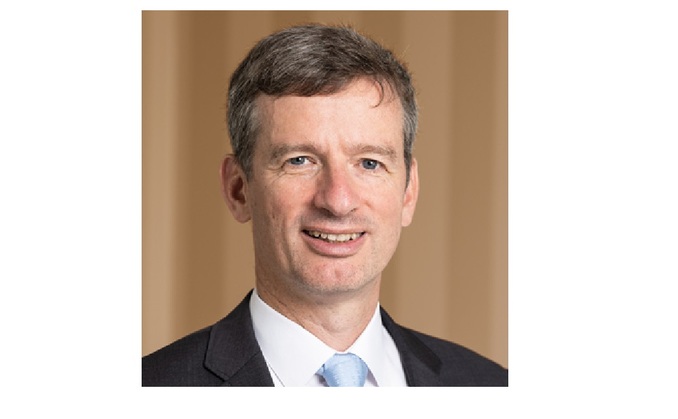
With £270m in AUM and a team with over a decade of experience in dividend investing, the JSS Sustainable Equity - Global Dividend Fund is one to watch. It provides investors access to a concentrated portfolio of global companies focused on developed markets and aims to deliver a steady and rising income. Integrating J. Safra Sarasin’s sustainability know-how throughout the investment process, it follows a high conviction approach, focusing on companies that exhibit strong balance sheets and attractive cash flow generation as well as established dividend policies. Portfolio Manager Jean-Philippe Hechel will explain our approach, what differentiates the Fund and why it should be considered by investors.
Can you give a brief overview of your strategy in terms of what you are trying to achieve for investors, your investment process and the make-up of the investment team?
Strategy
The JSS Sustainable Equity - Global Dividend (SFDR Art. 8) is an actively managed strategy that focuses on companies that pay attractive and sustainable dividends. We believe that the potential benefits of a dividend stock portfolio are an attractive risk/return profile, limited drawdowns and stable income. The focus is on established companies in Europe and North America that have a longstanding track record, strong balance sheets with low leverage, demonstrate rising dividend distribution over time and superior visibility. It aims to deliver long-term capital growth and attractive capital gains.
Investment Process
The strategy follows a bottom-up, fundamental and rigorous investment process. It combines the J. Safra Sarasin sustainability approach with a focus on sustainable dividend. The strategy is based therefore on four investment principles: 1) Dividends as key long-term driver of equity returns, 2) Focus on quality companies, the history of growing dividends, dividend visibility and how dividends are financed. 3) ESG considerations 4) Rigorous portfolio construction and risk management.
Investment team
The investment team is headed by Jean-Philippe Hechel (Lead portfolio manager) and Arno Gamboni (Senior portfolio manager). They have been with J. Safra Sarasin for over a decade and have a combined industry experience of more than fifty-five years. They are supported by four additional portfolio managers and benefit from the intelligence of the firm's core and thematic equity teams, which includes sixteen additional pm/analysts. All members of the team integrate sustainability criteria in their company analysis and portfolio construction processes.
How are you positioning your portfolio for 2023?
It is critical to focus on quality companies that can generate stable cash flows, have reliable dividend policies, solid balance sheets and low debt levels as we enter 2023 in a context of slowing growth and rising interest rates. The latter is particularly important because it reduces a stock's sensitivity to rising interest rates significantly. This cautious approach allows us to build a resilient investment portfolio that can withstand market downturns while also providing attractive long-term upside potential. Dividends have in fact been the primary driver of long-term equity returns.
Within financials, we focus on insurance companies as well as banks with stricter regulations and capital rules as well as industrials, discretionary and defensive healthcare and continue to position the portfolio for the long-term.
Can you identify a couple of key investment opportunities for your fund you are playing at the moment in the portfolio?
The magnitude and speed of interest rate movements, as well as events in the banking sector, demand caution and highlight the importance of defensive positioning. As a result, the high quality segment (companies with low debt and stable earnings) remains the preferred category within equities.
At a stock level, we recognise that higher interest rates in the United States and Europe, coupled with recession fears are affecting housing activity and the home improvement industry. Nexity, a market leader in residential housing in France and Home Depot, a market leader in home improvement in the United States have both felt the repercussions. However, the long-term outlook remains positive, and dividends have been increased (Home Depot) or maintained (Nexity).
We also have discretionary holdings, such as Darden Restaurants, which reported quarterly results that exceeded expectations by 2.2% in revenue and 4.7% in adjusted EPS. Momentum remains strong, with adjusted EPS more than 20% higher than last year's result, owing to the benefits of the economy's reopening, as well as productivity measures at least partially offsetting the impact of higher labour costs and inflation. With its strategy of price increases below inflation, the company continues to gain market share.
This document constitutes marketing material. It is intended for professional (wholesale and institutional businesses) investors only. If it refers to a financial instrument for which a prospectus and/or a key investor/information document exists, these are available free of charge from Bank J. Safra Sarasin Ltd, Elisabethenstrasse 62, P.O. Box, CH-4002 Basel, Switzerland.
This document has been prepared by Bank J. Safra Sarasin Ltd ("Bank") for the sole use of the recipient only. The information and descriptions of the investment product contained in this document are intended purely for information purposes and do not constitute financial, legal or tax advice and/or any other recommendation, offer or solicitation to acquire or sell investment products, to engage in a transaction, or to conclude any type of business, nor are they any substitute for, in each individual case, obtaining the necessary advice and information on risk from your professional advisor to an extent which you consider appropriate and reasonable, in order to ensure that the transaction is appropriate and suitable to your financial goals and circumstances.
This document is based on publicly available information and data ("the Information") believed to be correct, accurate and complete. The Bank has not verified and is unable to guarantee the accuracy and completeness of the Information contained herein. Possible errors or incompleteness of the Information do not constitute legal grounds (contractual or tacit) for liability, either with regard to direct, indirect or consequential damages. There is no obligation on the part of Bank or any other person to update the content of this document. The views and opinions contained in this document, along with the quoted figures, data and forecasts, may be subject to change without notice.
The collective investment fund described in this document is a subs-fund of JSS Investmentfonds II, SICAV. JSS Investmentfonds II is a UCITS organized as an open-ended investment company (société d'investissement à capital variable - "SICAV") regulated by the Commission de Surveillance du Secteur Financier ("CSSF"). It has been authorized for marketing in Switzerland by the Swiss Financial Market Supervisory Authority FINMA.
The price and value as well as any income that might accrue of any financial instrument mentioned in this document may move upwards or downwards.
Past performance is no indication of current or future performance. The performance shown does not take account of any commissions and costs incurred on the issue and redemption of units. Such costs and commissions have a negative impact on the performance of the fund. Information containing forecasts are intended for information purpose only and are neither projections nor guarantees for future results and could differ significantly for various reasons from actual performance. Investments in foreign currencies are subject to exchange rate fluctuations. Exchange rate risk will apply if the investor's reference currency is not the same as the investment currency.













